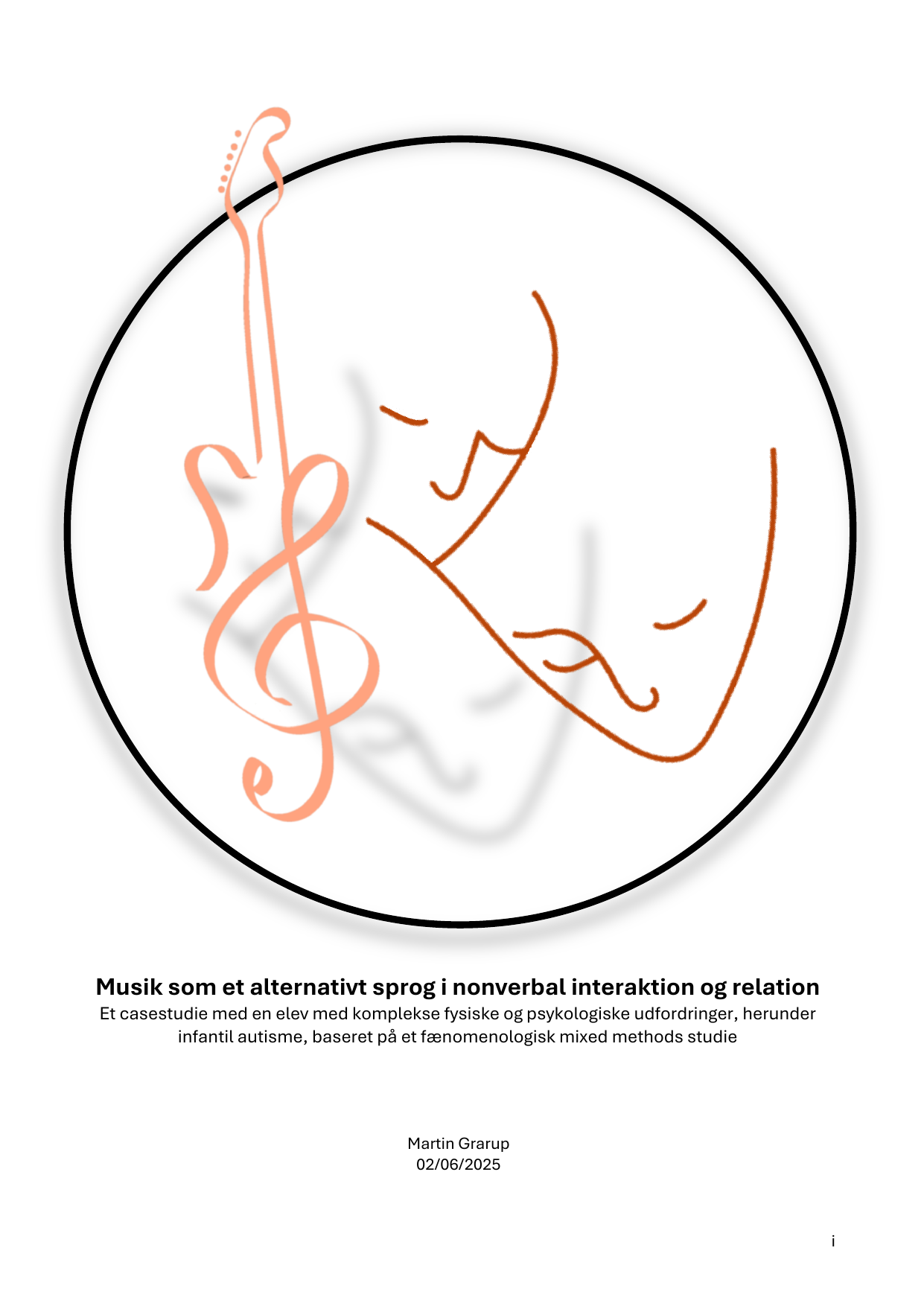
Musik som et alternativt sprog i nonverbal interaktion og relation: Et casestudie med en elev med komplekse fysiske og psykologiske udfordringer, herunder infantil autisme, baseret på et fænomenologisk mixed methods studie
Oversat titel
Music as an alternative language in nonverbal interaction and relationship: A case study of a student with complex physical and psychological challenges, including infantile autism, based on a phenomenological mixed methods study
Forfatter
Semester
4. semester
Uddannelse
Udgivelsesår
2025
Afleveret
2025-06-01
Antal sider
76
Abstract
Børn med infantil autisme kan have en begrænset eller fraværende verbal kommunikation, hvilket kan udfordre etableringen af en interaktion og relation med omverdenen. Dette speciale tager udgangspunkt i en case/elev fra praktikforløbet på en specialskole. Her undersøges improvisatorisk musikterapis muligheder for at bidrage til etableringen og udviklingen af en meningsfuld nonverbal kommunikation og relation med en case/elev med bl.a. infantil autisme. I et fænomenologisk, intrinsic casestudie, baseret på mixed methods, bruges assessmentredskaberne AQR og KAMUTHE til kvantitativ og kvalitativ analyse af tre udvalgte videosekvenser fra forløbet. Fund herfra viser improvisatorisk musikterapis muligheder for at etablere og skabe meningsfuld nonverbal interaktion, med eleven på alle skalaer i AQR. Hvor musikalsk matching/affektiv afstemning af især emotionelle kvaliteter og terapeutens facilitering af rytmisk grounding, har været vigtige i udviklingen af en meningsfuld, nonverbal interaktion og relation mellem eleven og terapeuten. Resultaterne kunne tyde på, at musikterapien har potentiale som en nonverbal kommunikationsform og kunne bidrage i den tværfaglige indsats på det specialpædagogiske område.
Children with infantile autism may have limited or absent verbal communication, which can challenge the establishment of interaction and relationships with the outside world. This thesis is based on a case/student from the internship at a special school. Here, the possibilities of improvisational music therapy to contribute to the establishment and development of a meaningful nonverbal communication and relationships with a case/student with e.g., infantile autism are examined. In a phenomenological, intrinsic case study, based on mixed methods, the assessment tools AQR and KAMUTHE are used for quantitative and qualitative analysis of three selected video sequences from the course. Findings from this show the possibilities of improvisational music therapy to establish and create meaningful nonverbal interaction with the student at all scales in AQR. Where musical matching/affective tuning of emotional qualities in particular and the therapist's facilitation of rhythmic grounding have been important in the development of meaningful nonverbal interaction and relationships between the student and the therapist. The results could indicate that music therapy has potential as a nonverbal form of communication and could contribute to interdisciplinary efforts in the special education area.
Emneord
